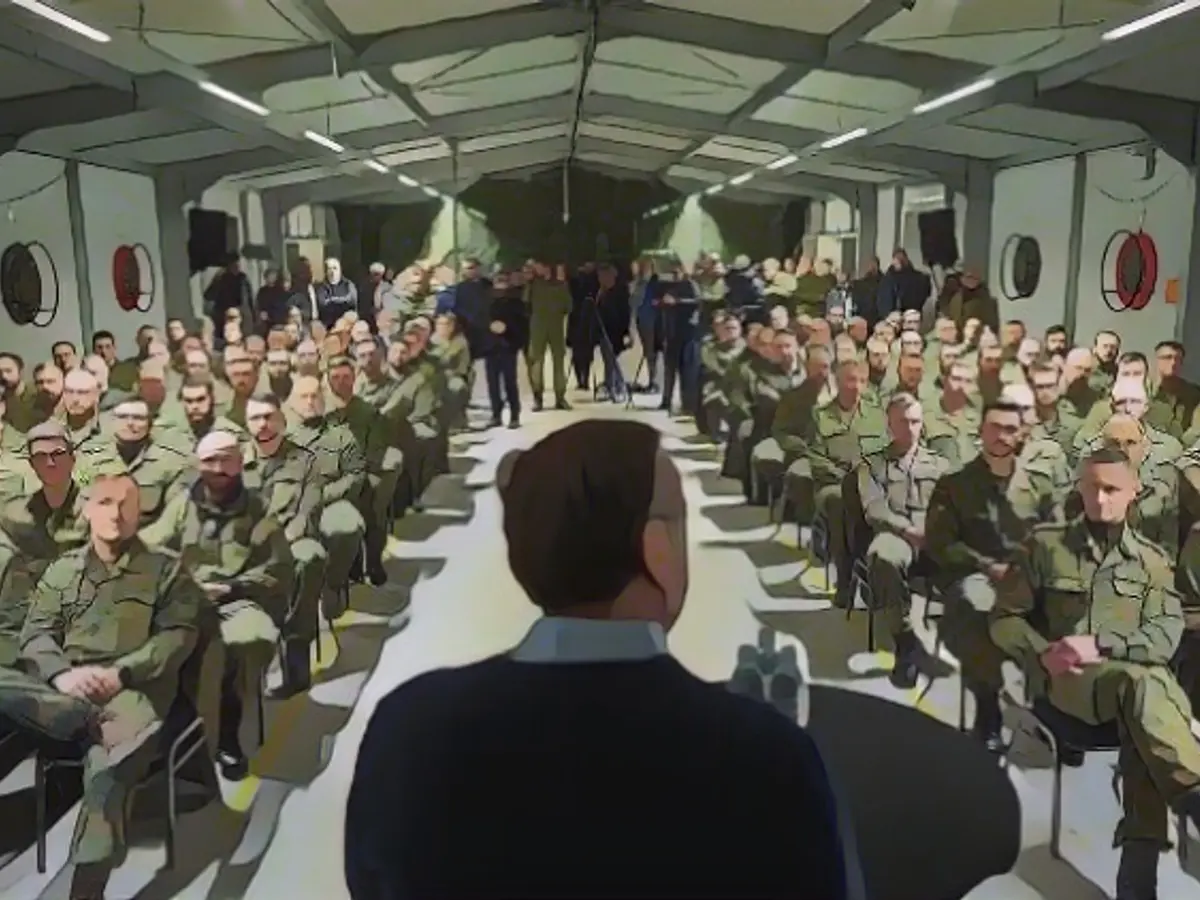Defense Minister Boris Pistorius's explorations into revitalizing Germany's military force are sparked by a pressing issue – the Bundeswehr's depletion in personnel. One model under consideration? Swedes' conscription, which selectively drafts service members from the population. Pistorius admits to evaluating all feasible options, but cautions that political support is crucial for any adopted approach, no matter which one it may be .
The suspension of conscription in Germany, dating back to 2011, and Pistorius's belief in this decision's mistake, have led him to seek alternative solutions to tackle the manpower predicament . Previously, Federal Chancellor Olaf Scholz had dismissed any debate on reintroducing mandatory military service. However, Pistorius contends that the factors behind the suspension's enforcement were not entirely beneficial, and reinstating it is now complicated due to constitutional, political, and structural considerations .
The FDP, one of the German coalition partners, adamantly opposes the revival of compulsory military service. FDP's defense policy spokesman, Alexander Müller, voiced concerns about infringing upon civil liberties and unnecessarily forcing young people into service. Müller proposed that the Bundeswehr requires motivated, well-compensated, and voluntary soldiers rather than resorting to coercive methods .
Despite these challenges, CDU's deputy leader, Johann Wadephul, is open-minded to various military service models, including compulsory service. He emphasized that Germany should prioritize a well-armed forces capable of preserving peace and security in the world .
A Look at Germany's Potential Strategies
The Bundeswehr is employing a variety of tactics to combat the personnel shortage, such as launching youth camps, recruitment campaigns, and questionnaires to gauge willingness to serve among 18-year-olds – both male and female . Additionally, efforts are being made to establish a reservist force to bolster troop numbers when needed, with a goal of having 200,000 reservists in wartime .
Diverse voices can be found within Germany's political landscape when it comes to military service. The CDU and FDP support an increase in defense spending, potential conscription reform, and a hardline approach towards NATO’s adversaries. The Left Party rejects military missions abroad, advocates for the dissolution of NATO, asylum for refugees, and market regulation. The AfD role-modelizes the Swedes, favoring a return to conscription, while the SPD and Greens generally support more pacifist foreign policy .
In conclusion, while the FDP and CDU explore the possibility of reinstating compulsory military service, other political parties have differing views. The Left Party, for instance, advocates for a more pacifist approach, while the AfD urges a return to conscription. The SPD and Greens share a general inclination towards a peaceful foreign policy, making the prospect of mandatory military service unlikely for now .
Added Insights:
When examining compulsory military service, it is essential to consider both the benefits and potential drawbacks:
- Benefits: Mandatory military service may help guarantee a stable military force. It can also enhance the overall fitness, discipline, and camaraderie within the military. Furthermore, compulsory service could promote civic consciousness by fostering a sense of community and national duty .
- Drawbacks: Critics argue that forced military service can restrict personal freedoms, potentially leading to resentment within the population. It can also trigger conflict between young men and women who may not wish to serve and those who do, potentially leading to social divisions . While the quest for a more robust defense force is admirable, balancing it with societal considerations is equally important.
- Source:
- Source:
- Source:
- Source:
- Source:








